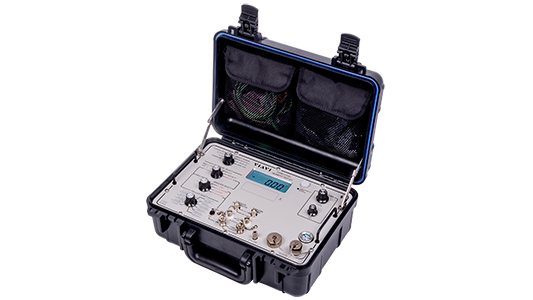Chandler, Ariz., – Viavi Solutions Inc. has unveiled its new PSD90-3 fuel quantity test set at AEA 2023. The test set allows the user to test, troubleshoot and isolate fuel system issues, calibrate fuel quantity indicators and detect contaminated fuel probes. The PSD90-3 will test any AC or DC capacitive fuel, water, liquid oxygen (LOX), or engine oil system.
Uniquely, the test set includes automatic detection of probe contamination, an issue for commercial and military aircraft worldwide. Particulates and moisture present in fuel significantly promote bacteria and fungi growth. These microorganisms feed on the hydrocarbons in the fuel to produce a substance that can reside on fuel probes, causing a fouled probe which can lead to incorrect fuel level indication, a problem that can go undetected for some time.
The PSD90-3 provides users with two methods, Auto and Manual, for detecting and isolating contaminated fuel probes caused by particulates, water, microbial growth, or other sources of contamination. During normal capacitance measurements, the contaminated fuel probe detection function will automatically alert the user via a Percent of Error indication on the display and with a Contaminated Fuel Probe Detected LED on the front panel.
The test set accesses the Fuel Quantity Indicating System (FQIS) through an interface which is unique to each aircraft. PSD90-3 is suitable for flight line testing on battery power or bench testing on external power.
The PSD90-3 replaces previous test sets including the PSD30-2AF, the PSD60-2R, the PSD60-1AF and the PSD90-1C. This portfolio has supported fuel quantity system testing of rotary and fixed-wing aircraft for over 30 years as part of Goodrich Aerospace, then Aeroflex, and now VIAVI. During this time, VIAVI has supported system testing of over 200 aircraft platforms, from the Airbus A300 to the V-22 Osprey.
“Contamination in the fuel tank can cause an incorrect fuel level indication,” said Guy Hill, Director of Avionics Test Products, VIAVI. “We’re making it easier than ever to address this through automatic sensing, as a critical and efficient part of flight line testing. We look forward to working with our partners in the aviation industry to address this problem.”














